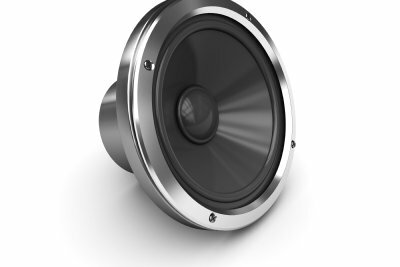Build portable speakers yourself
Before you start building portable speakers yourself, there are a few things you should do with portable speakers.

What you need:
- Lead-gel battery / lead-fleece batteries
- casing
- Insulation material
- Speaker kit
- charger
Basics about portable speakers
To avoid disappointment when building it yourself, you should let some preliminary considerations go through your head. After all, it may be that your dream speaker is technically impossible or that it is available in stores for little money. In either case, building your own portable speakers wouldn't make sense:
- The most important question is what demands you place on the term "wearable". Just think of the sound systems of the past and of today. A ghettoblaster that weighs almost 10 kg is also portable. Define for yourself what should be portable, in terms of size and weight.
- Which area of application is intended? Do you want to provide sound to guests everywhere, even on a green meadow without a power connection? Or should the portable loudspeaker be transportable, but is powered from the outside?
- Define the requirements for the sound system. Wish you great sound to music To be able to perform really well, or is it about strengthening your language because you want to give a lecture?
- The independence from the power supply will always lead to problems with the weight and size of the speakers. Mini speakers cannot be built independently of the mains, neither you nor experts can do that.
Build PA boxes yourself - this is how it works
In contrast to hi-fi boxes, PA boxes must be able to handle large ...
Build your own sound systems
- Regardless of whether it is a portable loudspeaker or one that takes on the dimensions of a wall unit - you always need the actual loudspeaker that generates the tones and a housing. Without the case, the vibrations from the front and back of the tone generator would cancel each other out and you would only hear a pitiful beep.
- However, this housing must not simply vibrate in an uncontrolled manner. For this reason, you have to insulate the housing against vibrations. As you can see, none of this gets really tiny. You can get valuable advice on building speakers from Loudspeaker.de. The knowledge imparted there is certainly useful if you want to build portable loudspeakers yourself.
- Loudspeakers always need an additional source of energy to keep the incoming Sound to reinforce. Rechargeable batteries can serve as a power source. Lead-gel batteries are particularly recommended here. They are a bit heavier, but they are a good source of energy that you can use to listen to music for a long time.
- Although wood is heavy, you should build the case from wood and sturdy, for the one you need battery pack has a corresponding weight. Acrylic sheets are also an option, but these should be reinforced with a wooden frame so that the battery sits securely in the case.
- Make sure that all components are also approved for outdoor use, as many loudspeakers are sensitive to moisture. As an alternative, you need to install the parts in such a way that they cannot get wet.
- It is advantageous to use ready-made kits that you simply supply with electricity from the battery instead of electricity from the socket.
- Note that it is quite difficult to build good speakers. It's not just about joining electronic components, but mechanically creating a good sound. Even tiny changes in the insulation can totally change the sound. This problem always exists when you build speakers yourself, not just portable ones.
How helpful do you find this article?

